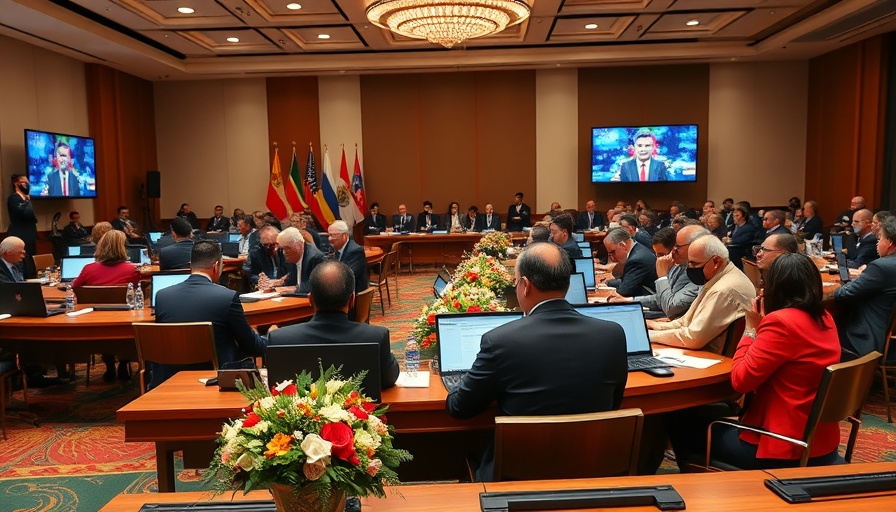
Brazil Takes Charge of BRICS: A New Era of Cooperation
In a pivotal moment for international relations, Brazil has stepped up as the leader of the BRICS group—an alliance of emerging economies—including new members that now represent over half of the world's population and nearly 30% of global GDP. As tensions rise between the United States and China, Brazil under President Lula is navigating a complex landscape of diplomacy, trade, and sustainability, positioning itself as a bridge between diverse nations.
Navigating US-China Dynamics for Global Prosperity
The aggressive tariff policies initiated by the US under President Trump have created a climate of uncertainty, compelling Brazil to carefully manage its relationships on the global stage. Experts caution that while engaging with China and other BRICS members, Brazil must also avoid provoking the US into viewing it as an anti-Western entity. This balancing act is critical as Brazil aims to assert itself, yet remain considered a responsible player in global trade.
The Role of Sustainability in BRICS Leadership
With the COP30 climate summit approaching, the integration of sustainability into the discussions at the 2025 BRICS summit marks a significant priority for Brazil. Climate change remains a pressing issue, and this summit presents a vital opportunity for Brazil to propose collective actions aimed at climate resilience across BRICS nations, all while establishing a clear agenda for the New Development Bank, which focuses on sustainable development.
Inclusivity in the BRICS Membership
The recent expansion of BRICS has introduced new voices and perspectives into the dialogue. Countries like Indonesia, Egypt, and Iran bring unique priorities that influence the overall objectives of the bloc. This diversity can foster a more inclusive approach to tackling global challenges, amplifying the call for sustainable initiatives which support the environment while driving economic progress.
Future Opportunities for Ethical Consumption
As the BRICS nations gather under Brazil’s leadership, there is potential for the promotion of sustainable businesses and practices throughout the member countries. Encouraging the adoption of renewable energy, fair trade, and ethical sourcing can serve as essential strategies for not only reducing the environmental footprint but also enhancing economic stability across the Global South. By embracing these practices, BRICS can lead a new wave of eco-conscious consumerism that makes sustainability a universal goal.
Shaping a Sustainable Future Together
The upcoming summit in July 2025 presents Brazil with the chance to forge a new path in international cooperation focused on both economic growth and environmental stewardship. As leaders from diverse cultures and economies share their views, the potential for collaborative initiatives tackling plastic pollution, sustainable agriculture, and waste management becomes increasingly abundant.
In summary, as Brazil leads the BRICS nations, it offers not only a voice of reason amid global tensions but also a commitment to forging a sustainable future through cooperation. The world watches as Brazil aims to balance diplomacy, trade, and sustainability, paving the way for a more equitable global community.
 Add Row
Add Row  Add
Add 



Write A Comment